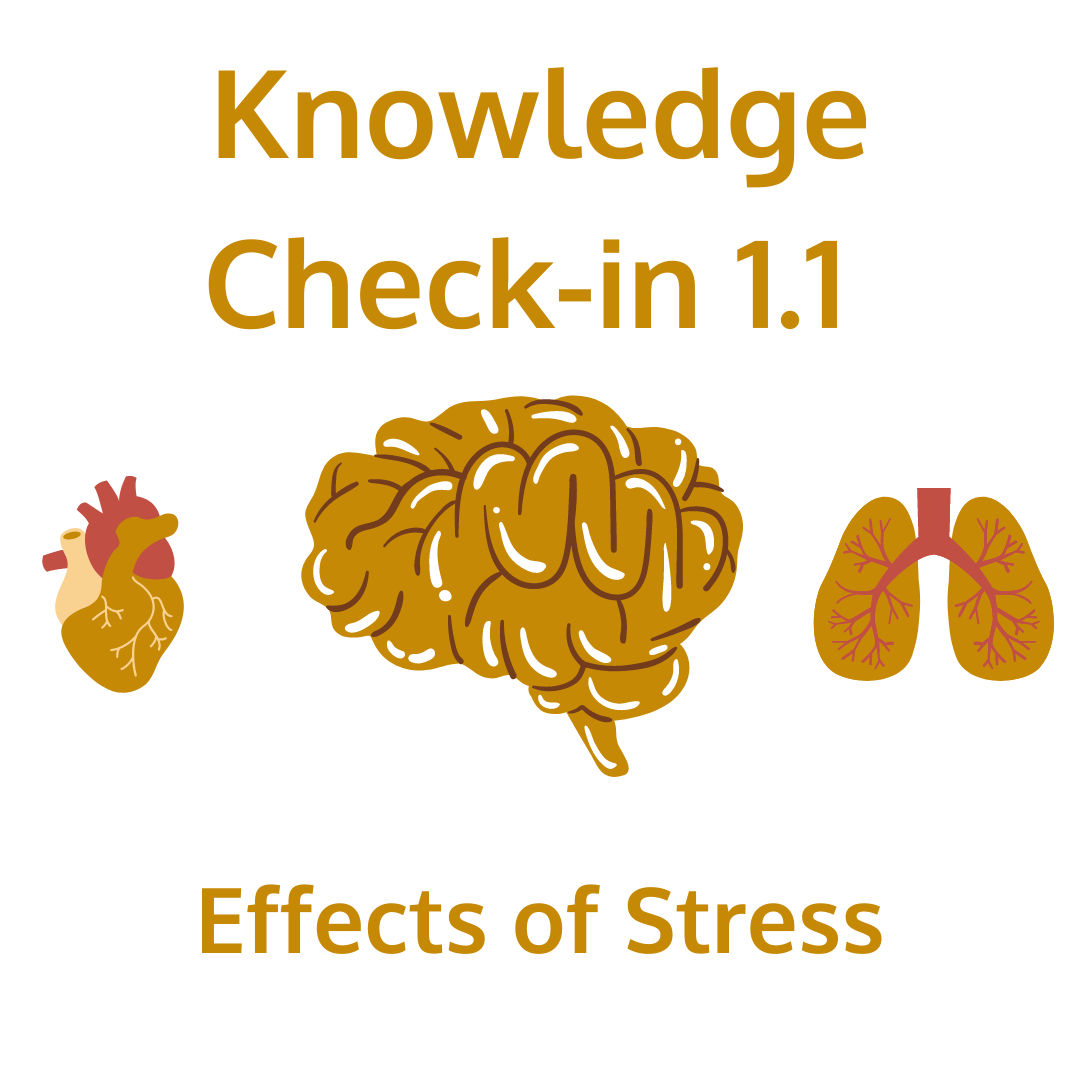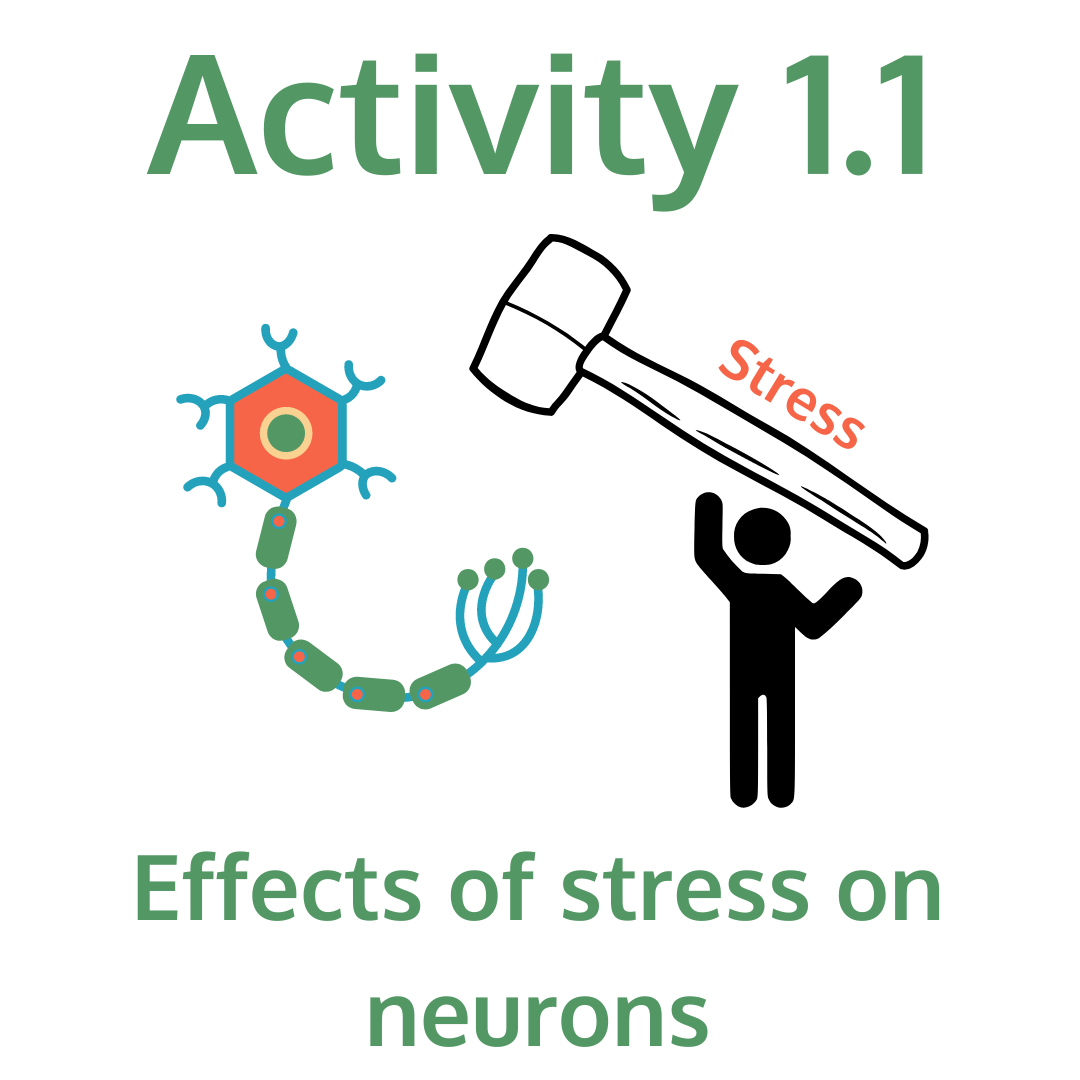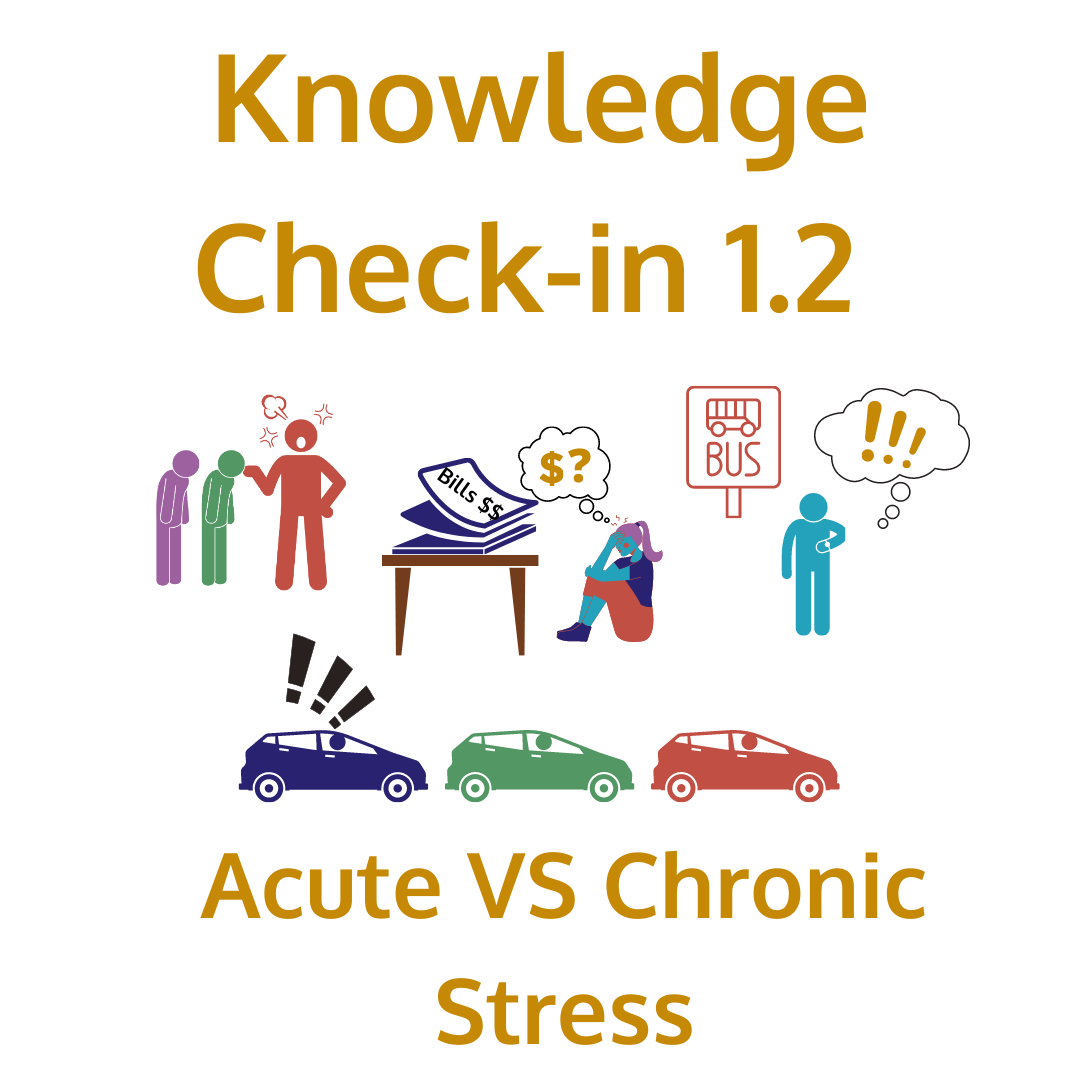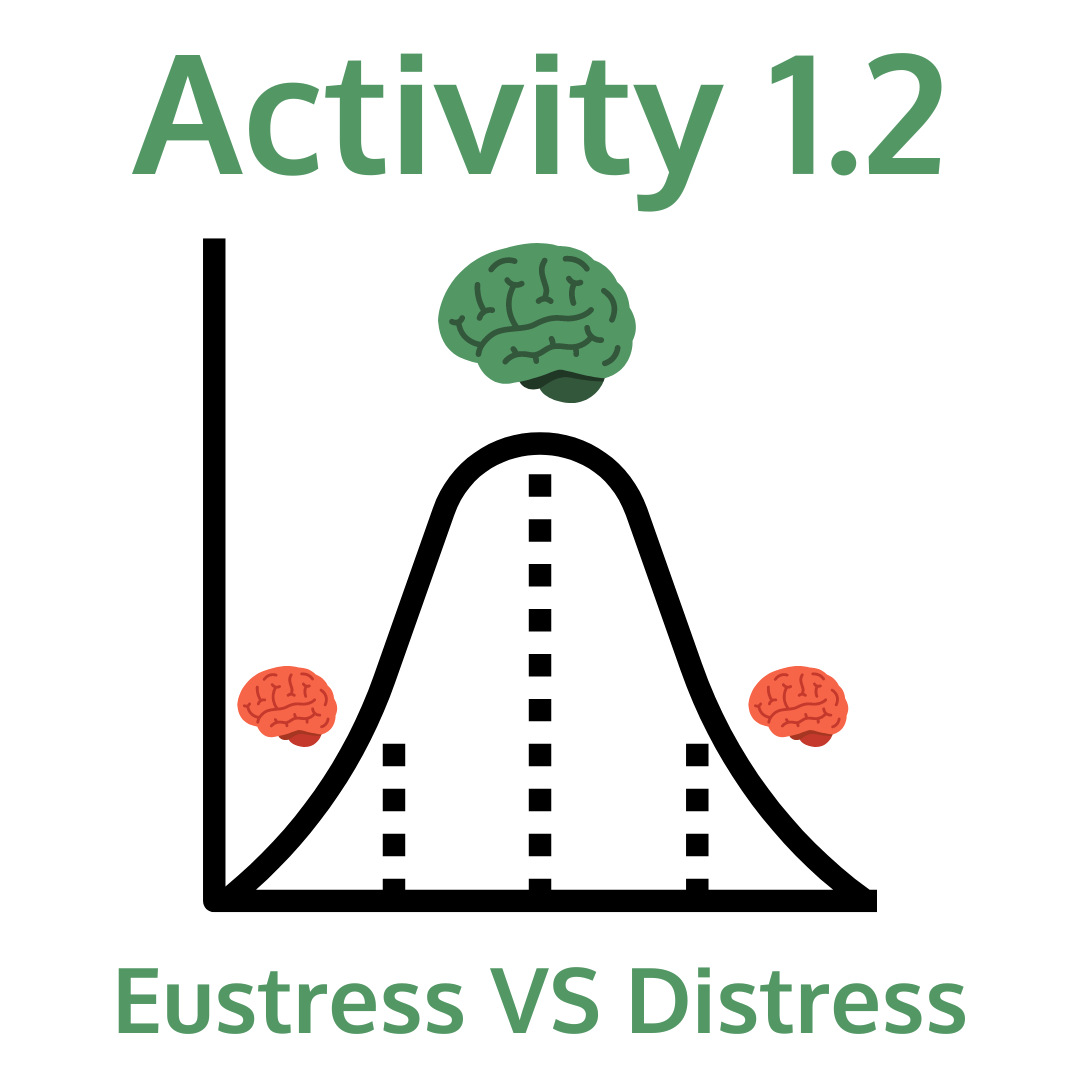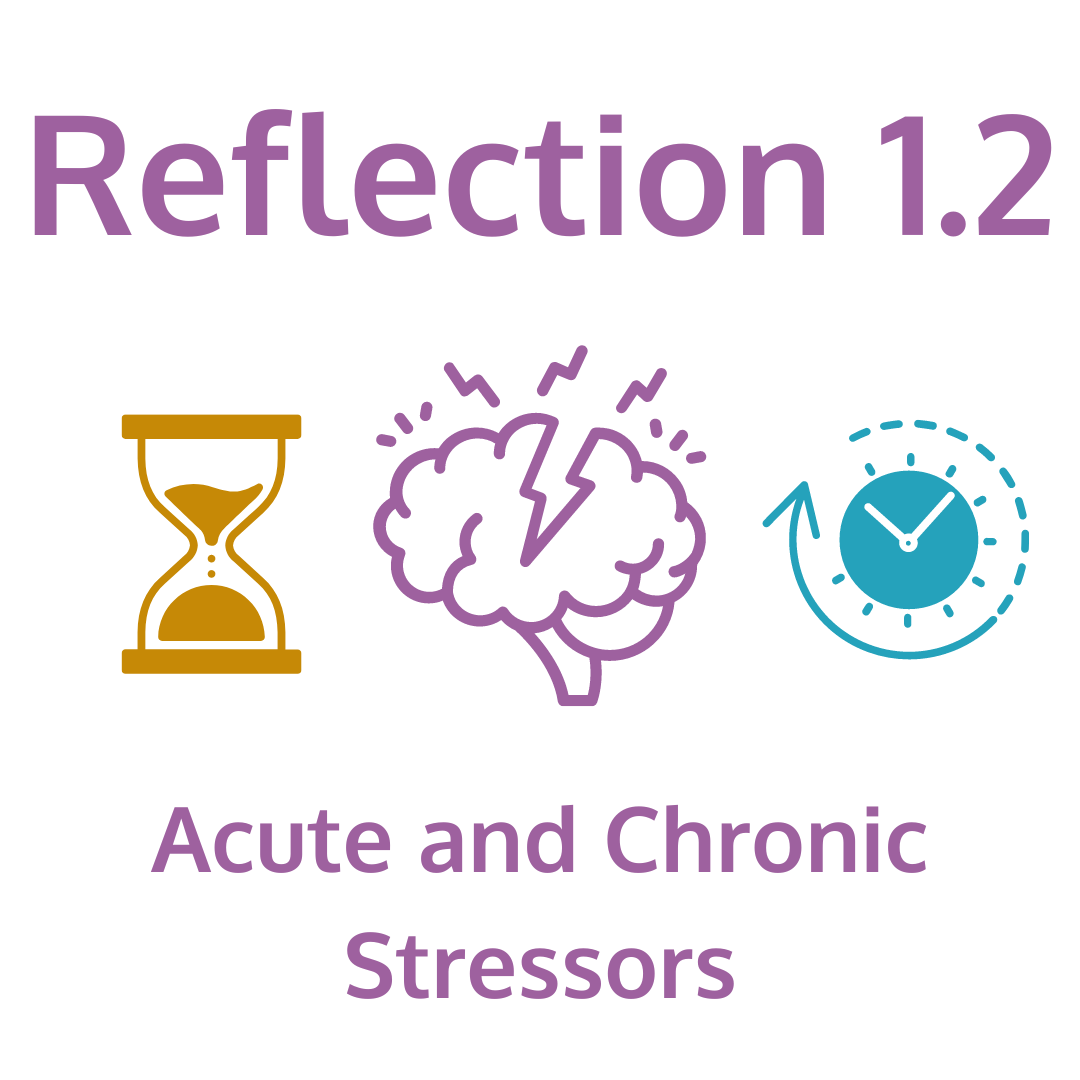Part 1: Understanding stress
Explain the importance of stress for survival and differentiate between acute (i.e., adaptive) and chronic (i.e., damaging) stress.
Estimated time to complete: 1 hour 30 minutes

Quiz 1.1: What do you already know quiz?
2 mins
This introductory quiz will help you reflect on how you see stress and your knowledge about the symptoms of short-term and long-term stressors.
Activity 1.1: Effect of Stress on Neurons
3 mins
The following activity will allow you to explore the different ways in which short and long-term stressors impact the form and function of your neurons.
For some, this information may feel familiar, or it may be completely new to you! If you want to review the anatomy and function of neurons click here!
Reflection 1.1: Stress and my Neurons
3 mins
Short-term and long-term stress impact cognition and brain health differently. For example, think about what it’s like to stretch a new elastic band VS a heavily used elastic band. The new elastic band feels strong and can withstand some pressure, but the old elastic band may be frail and more likely to snap under pressure.
Podcast 1.1: Don’t Call Me Resilient – Episode 8
30 mins
Throughout this module, we have included select episodes from the Canadian podcast Don’t Call Me Resilient with host Vinita Srivastava. In this podcast, Vinita invites experts to discuss systemic racism in Canada and ways we can deal with it.
We are including this piece in our module as a regular and important reminder that while we can work on our own resilience with knowledge and deliberate practice, when we demand resilience from groups in society who are facing inequitable forms of chronic stress, we are contributing to oppression of these groups.
We hope that while listening to these episodes as you complete this module, you will gain insight into the true meaning of resilience VS how it is often harmfully used in our society, when it is OK to refer to certain traits and behaviours as ‘resilient’, and when we must instead demand equity for groups in our society experiencing systemic discrimination.
In this episode, Vinita is joined by two researchers who look at identity and belonging in Indigenous communities: Veldon Coburn from the University of Ottawa and Celeste Pedri-Spade from Queen’s University. Together, they examine the problem of people falsely claiming Indigenous identity and how this leads to significant financial and social consequences for Indigenous communities. This is a form of harmful, chronic stress – not the kind we discuss for optimal performance and growth in this part of the module. Listen to the podcast episode here.
Once you have finished listening to this podcast episode, don’t forget to take the quiz to check your understanding of the discussed content.
Quiz 1.2: Acute versus Chronic Stress
5 mins
This quiz will ask you to think about why stress responses exist, and how stress in modern times compares to stress from an evolutionary perspective.
Activity 1.2: Eustress versus Distress
2 mins
In this activity, we will ask you to reflect on different life events and whether you would classify them as good or bad stress. Studying in an academic program involves stress, and whether it’s eustress or distress may depend on how much time you have to dedicate to your studies. We will also ask you think about how much time it takes you to feel comfortable and prepared (i.e., in the eustress zone) for academic work.
Reflection 1.2: Acute and Chronic Stressors
5 mins
Short-term and long-term stress impact cognition and brain health differently. For example, think about what it’s like to stretch a new elastic band VS a heavily used elastic band. The new elastic band feels strong and can withstand some pressure, but the old elastic band may be frail and more likely to snap under pressure.
Podcast 1.2: Don’t Call Me Resilient – Episode 9
30 mins
In this episode of Don’t Call Me Resilient, Vinita is joined by guests Satwinder Bains, an Associate Professor and Director of the South Asian Studies Institute at the University of the Fraser Valley, and Maneet Chahal, the co-founder of Soch Mental Health, which encourages better access to mental health support in Canada’s South Asian communities.
They explore the mental health toll of being a ‘model minority citizen’, or living up to extremely high standards in Canadian society. This is a form of harmful, chronic stress – not the kind we discuss for optimal performance and growth in this part of the module.
Once you have finished listening to this podcast episode, don’t forget to take the quiz to check your understanding of the discussed content.
Part 1 Wrap-up: Understanding Stress and Mindfulness Meditation
2 mins
Now that you’ve finished Part 1 of the module, how have your opinions about stress changed?
